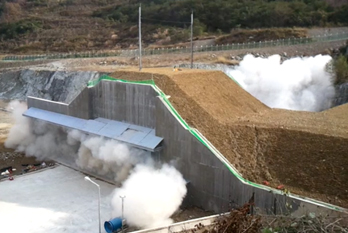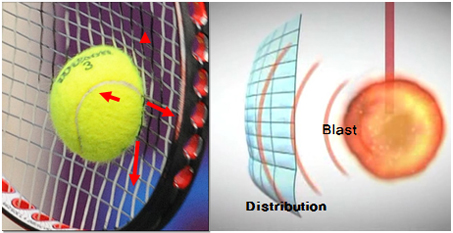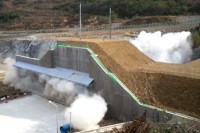Explosion and Progressive Collapse Resistant Design
ENGINEERING SPECIALTY

Blast load is no longer the exclusive domain of the military sector. Recently, it has become more of a concern to the average person regarding the structures around us. DongYang has been researching accidental and non-accidental blast resistant structures and progressive collapse, and has successively completed multiple projects in these fields.
Code and Standards
The Unified Facility Criteria (UFC) from the United States Department of Defense is the standard in this field. UFC provides planning, design, construction, sustainment, restoration, and modernization criteria:
- UFC 3-340-02 provides guidance for calculating blast loads and structural behavior
- UFC 4-023-03 provides guidance for progressive collapse resistant design
- UFC 4-010-01 and UFC 4-020-01 provide general guidance to minimize the effects of a terrorist attack
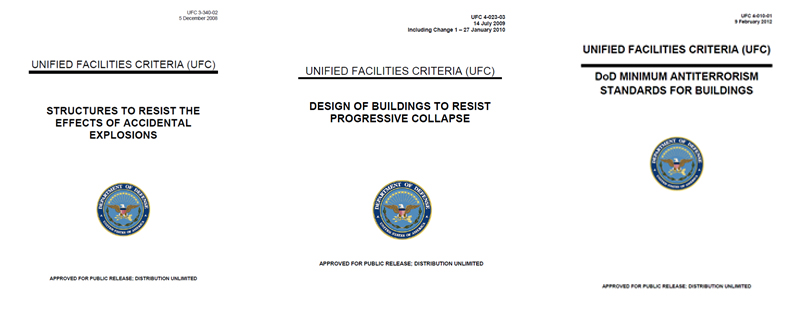
Blast Load Analysis
Blast load can be classified into two types: internal and external. External blast loads and their effects are well shown in UFC 3-340-01. However, internal blast load calculation is complex due to rebound and amplification of load. Internal blast load can be calculated using ALE formulation method in FEM analysis.
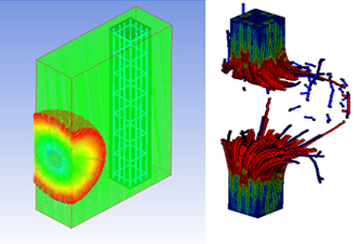
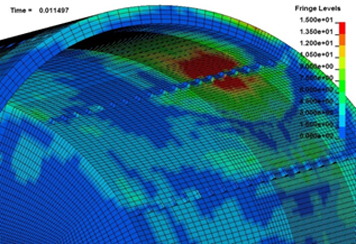
Progressive Collapse and Load Path Analysis
The goal of progressive collapse resistant design is to redistribute accidentally caused load to other components. This is so that the structure will retain sufficient strength until rehabilitation is possible. UFC 4-023-03 explains the tie force and alternative load path methods.
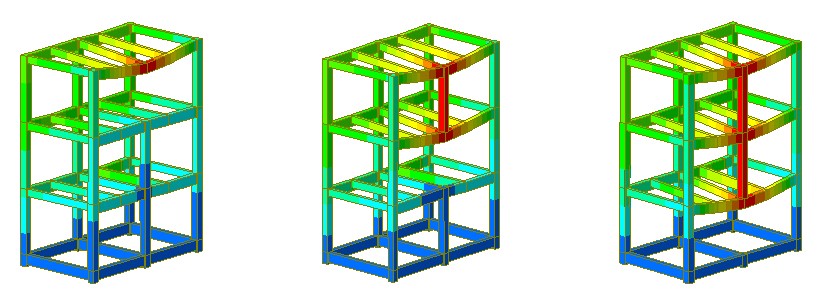
Protection Strategy
The threat of terrorism has increased in modern commercial and public buildings. There are two ways to protect people inside buildings. One is to design building components which can resist a terrorist attack (i.e., blast load). The second way is to design the building so as to minimize the possibility of attack. This includes limiting vehicle access to the building and placing structural members in locations which are inaccessible to vehicles. UFC 4-020-01 provides design guidance to minimize the effect of such attacks.
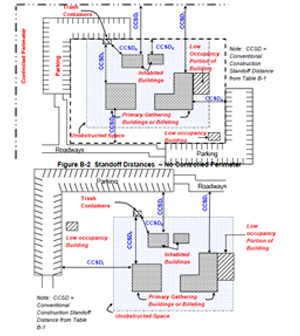
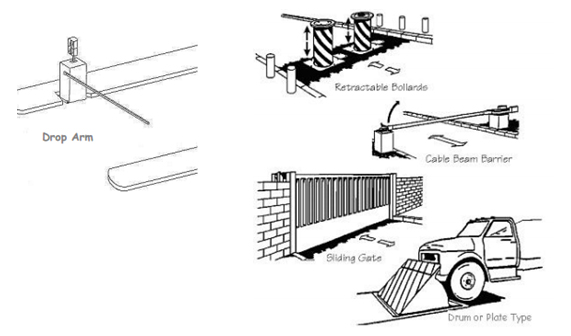
Our Application
DongYang is experienced in blast and progressive collapse resistant design. We have successfully completed several blast-proof structures, and we have also worked on progressive collapse resistant projects (which, unfortunately, cannot be shown here for confidentiality reasons).
